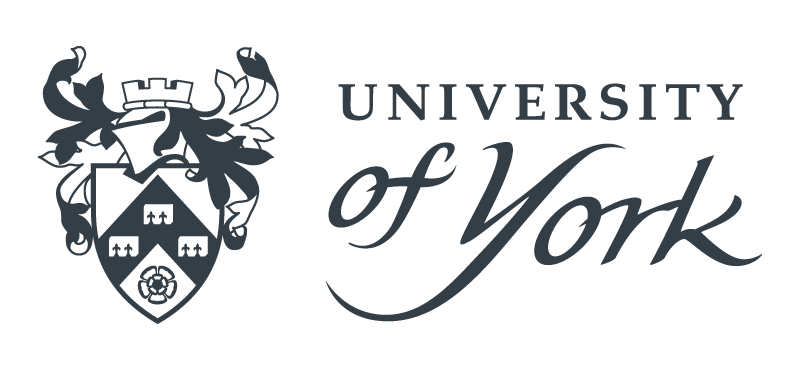LGBT+ History Month
February 2021
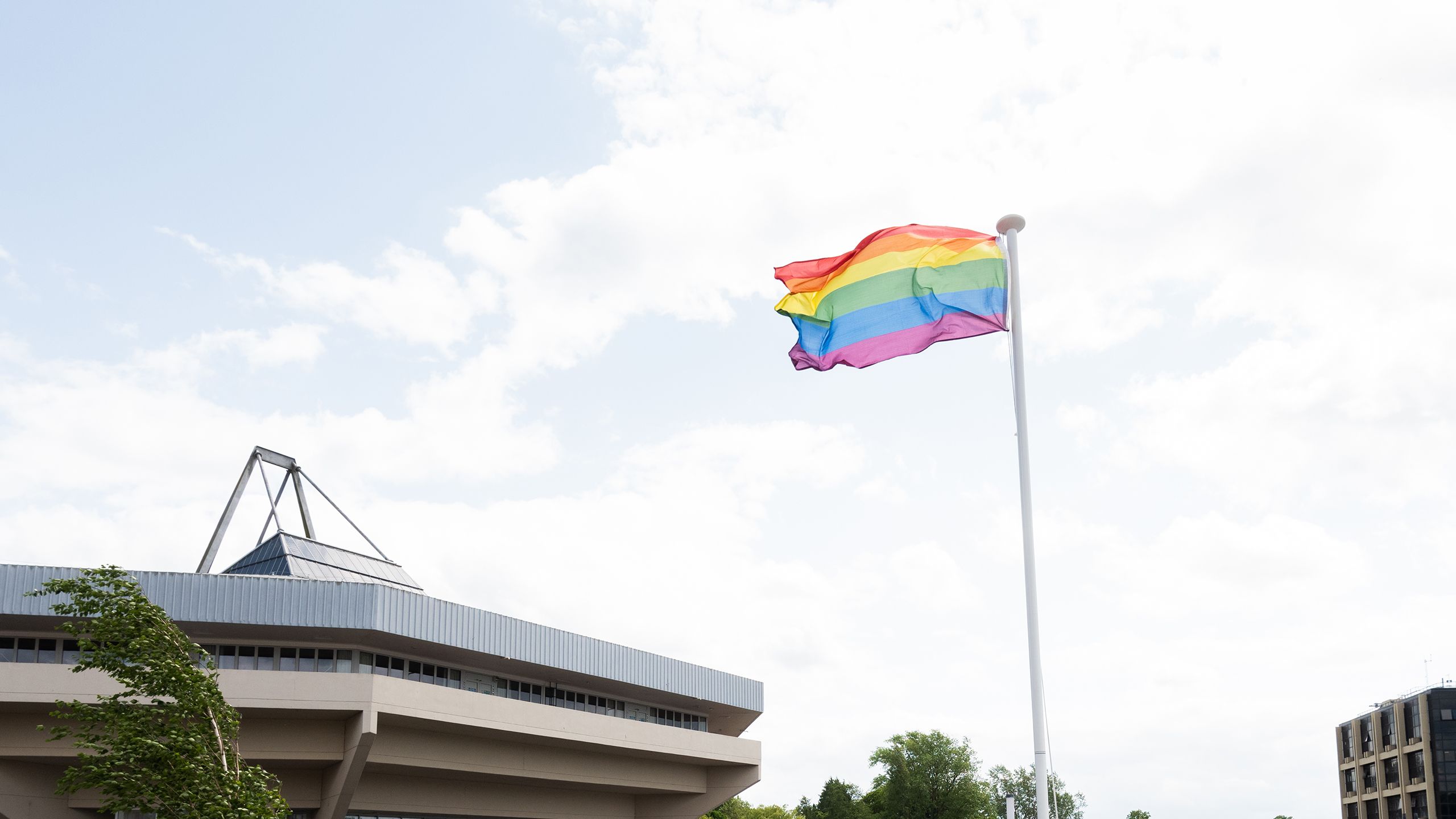
Jodi M Burn
(they/them pronouns)
I am the Women, Trans and Non-Binary Part Time Officer for the GSA and an MA Social Justice and Education student. Before arriving in York in 2020, I worked as a music tutor and youth worker supporting people from marginalised communities to express themselves through music with Girls Rock London, First Timers Fest, Gendered Intelligence and The Proud Trust, as well as performing, recording and touring with primarily queer artists.
As a non-binary trans person, I found the process of getting my correct name and pronouns on registers and my student ID straightforward, as the staff were very understanding. I'm hoping that by making issues around LGBTQIAP+ awareness more visible during LGBT+ History Month (and beyond), we can all move with the times to better support people with varying experiences of gender and sexuality.
Do you have any LGBT+ icons or inspirations?
One person I really admire is Munroe Bergdorf. Not only for being the powerful advocate for queer and Black communities during this moment of soaring hate crimes and media chastisement, but also for being able to forgive (without forgetting) and help people hold themselves accountable without cutting ties, even after being ridiculed and discriminated against, as she is currently doing with L'Oreal Paris. She is also a patron of Mermaids, a charity dedicated to supporting trans youth in the UK.
Any tips or advice for anyone wanting support?
Aside from the LGBTQIAP+ support within the University from YUSU, the GSA and staff, there are local organisations such as York LGBT Forum, MESMAC (sexual health/HIV support) and Time To Be Out (LGBTQ+ asylum seekers). Don't forget that there are always people who are working to support people like you if you are having issues related to your gender or sexuality. Please reach out if you need it!
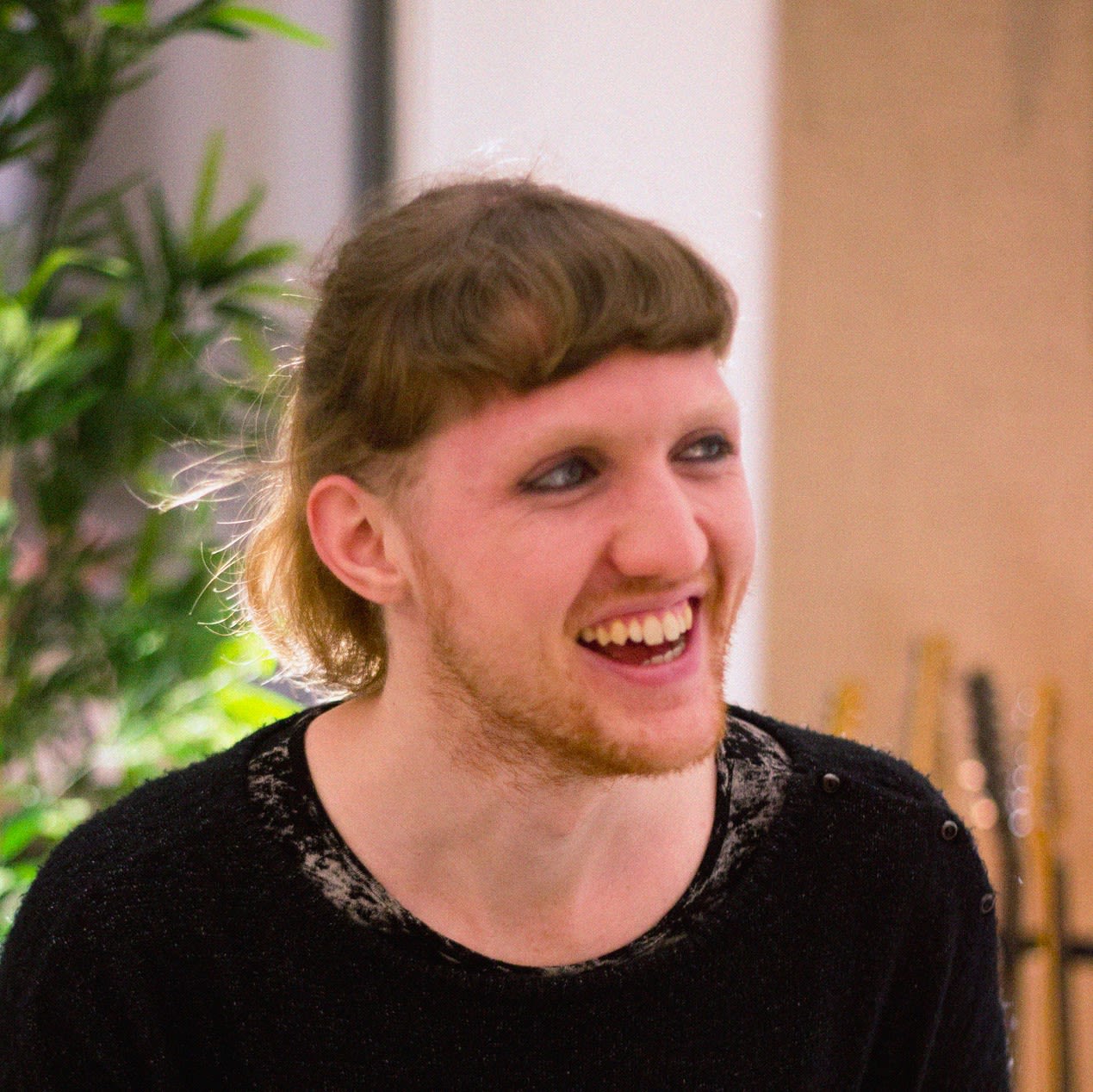
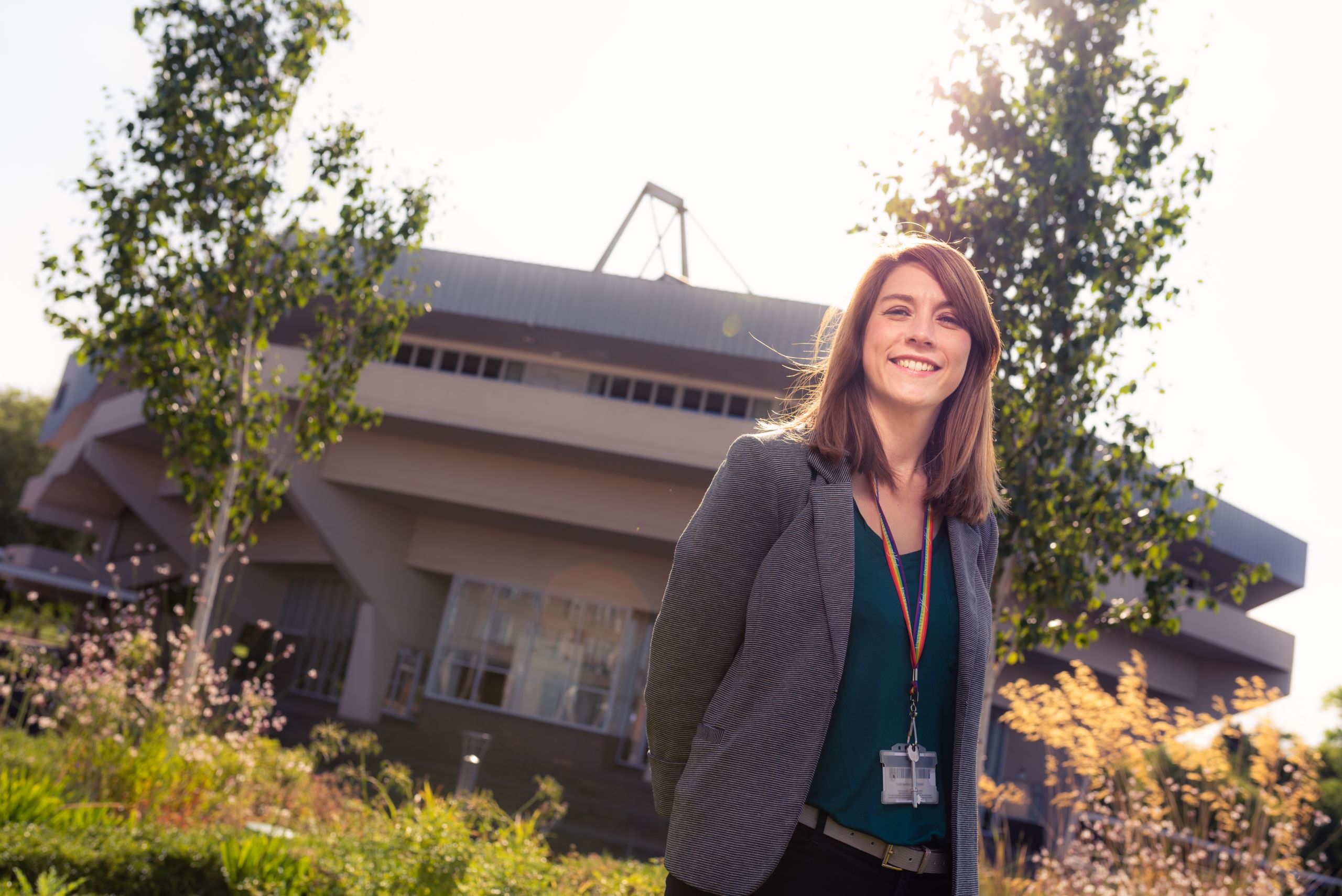
Hannah Smith
(she/her pronouns)
I'm Head of Operations in the Careers and Placements team in Student and Academic Services. I live here in York with my partner Sam, who's a Social Worker.
I love being part of the LGBT community here at the University and the wider York LGBT network.
I was 32 when I started working at the University and until that time, I wasn't 'out' in the workplace. Looking back now, I think the real reason why I wasn't out was largely because I had a pretty torrid time during my twenties. I came out to my parents when I was 21 but unfortunately they didn't take the news well; for the most part of my twenties I had very little contact with them. In a way, I think I was scared to come out in my professional world probably fear of further rejection, so I chose not to. I actively went out of my way to avoid all personal conversations with colleagues. I dreaded the Monday mornings conversations when everyone was talking about what they did with their partners, families and friends at the weekend. Over time this became a major problem for me and it went against the fabric of who I am. For anyone who knows me, you'll know I love to chat,and find out about people. Keeping this aspect of my life hidden started to have a major impact on me. Around about the same time, I was offered a job here at the University, so as part of me accepting the job, I made a commitment to myself to be open and honest about who I was, to bring my whole self to work from day 1. I've never regretted that decision and I'm a better person for it! It's enabled me to build better relationships with people, have meaningful discussions and provide support. I feel privileged to work somewhere that values me for who I am.
History month is so important and for me it's a time to both reflect and celebrate. We reflect and remember members of the community who have lost their lives or faced discrimination as a result of their sexuality or gender - 72 countries still criminalise same-sex relationships, eight countries still allow the death penalty as a form of punishment and just last year, 350 transgender people across the world were murdered. However it's also a time to celebrate our successes and the richness of diversity and to reflect on the distance we have travelled.
Do you have any LGBT+ icons or inspirations?
Kate McKinnon, who is simply awesome and a comedy genius. also recently inspired to hear the story of Kenneth Felts who last year, at the age of 90, came out! Despite knowing he was gay from the age of 12, Kenneth feared the rejection that was common place in the '50s, '60s and 70s. It wasn't until last year that Kenneth decided to confide in his openly gay daughter who fully embraced Kenneth's decision to come out. Just think how many people have felt forced to take a different life path, to divert off from the path that feels right and natural to them. LGBT History month is a time to celebrate people like Kenneth and to say loud and proud, it's never too late!
Any tips or advice for anyone wanting some support?
I'd encourage people to check out the work that Diversity Role Models do as well as AKT - a great charity dedicated to supporting young LGBT people who face homelessness or are living in a hostile environment. And don't forget, we have our own brilliant Resources page available to all staff.
Derek Wann
(he/him pronouns)
I work in the Department of Chemistry in a research field that brings together lasers, theoretical chemistry, and the use of high energy electrons to study the structures of materials. I’ve been employed as a lecturer and senior lecturer at York since 2013 and I'm part of the senior management team in Chemistry. I'm currently Chair of the Board of Studies – a role that allows me to both have a student-facing and staff-facing role.
I was incredibly lucky that I arrived at York as an openly gay man. I had been out in my previous university for many years and was able to weave my personal story throughout the application, interview and post-offer process. This was so refreshing. And as you might expect from an Athena SWAN Gold department, no-one ever assumed that I would be heterosexual! Since arriving in York I’ve been able to get involved in a number of equality, diversity and inclusion initiatives in my department and more widely in the university.
In 2019 I became co-chair of the LGBTI Matters staff forum. This has been a wonderful experience. Alongside a steering committee and the reps from YUSU and GSA, we have achieved a number of wins for staff and students. These include more diverse sets of honorary graduates, the painting of a rainbow crossing on campus, and a number of measures designed to help trans staff and students. The access we have to our current Vice-Chancellor, and his enlightened approach to EDI really makes me think that are making a difference.
Another highlight has been organising the LGBTQ+ STEMinar in York in 2018. This UK-wide celebration of research in STEM subjects is a wonderful event that started in Sheffield in 2016. It is a truly inclusive conference-style event, where you’re equally likely to hear a Masters student talk about their string theory project and a Fellow of the Royal Society discussing their research in mammalian biology.
For me LGBT+ history month is a chance to reflect on progress through the LGBT+ lens. It’s also a time when I find myself being thankful for the privilege that I enjoy, which others might not.
This year's LGBT+ history month has coincided with the release of Russell T Davies’ It’s a Sin on Channel 4. This hard-hitting drama deals with the HIV/AIDS crisis of the 1980s and 1990s, and among other themes it highlights the catastrophic effects of shaming and marginalising parts of society. Unfortunately it's something that I still see all too often, in the treatment of my trans friends today.
Do you have any LGBT+ icons or inspirations?
I follow a lot of LGBT+ scientists on social media, and I take inspiration from seeing so many of these people calling out bigotry, abuse and fake news online. In doing so they often open themselves to attack but for me, they are true icons, each making a small difference in their own way. My online network has been a huge source of support and it's been even more important during the pandemic – colleagues keeping an eye out for each other and trying to help when needed.
Any tips or advice for anyone wanting some support?
The Department of Chemistry has an equality, diversity and inclusion webpage which is a really good place to find information relating to sexuality and other protected characteristics. Yorkshire MESMAC provides sexual health advice, and their website contains information that I know has been useful to colleagues and students in the past.
York LGBT Forum is a good source of support in York and York Pride organise events and offer opportunities to volunteer.
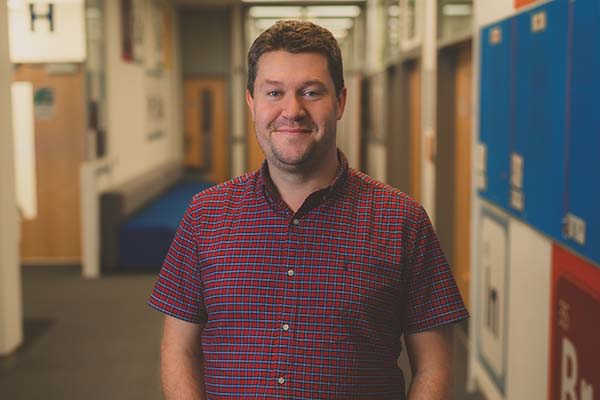
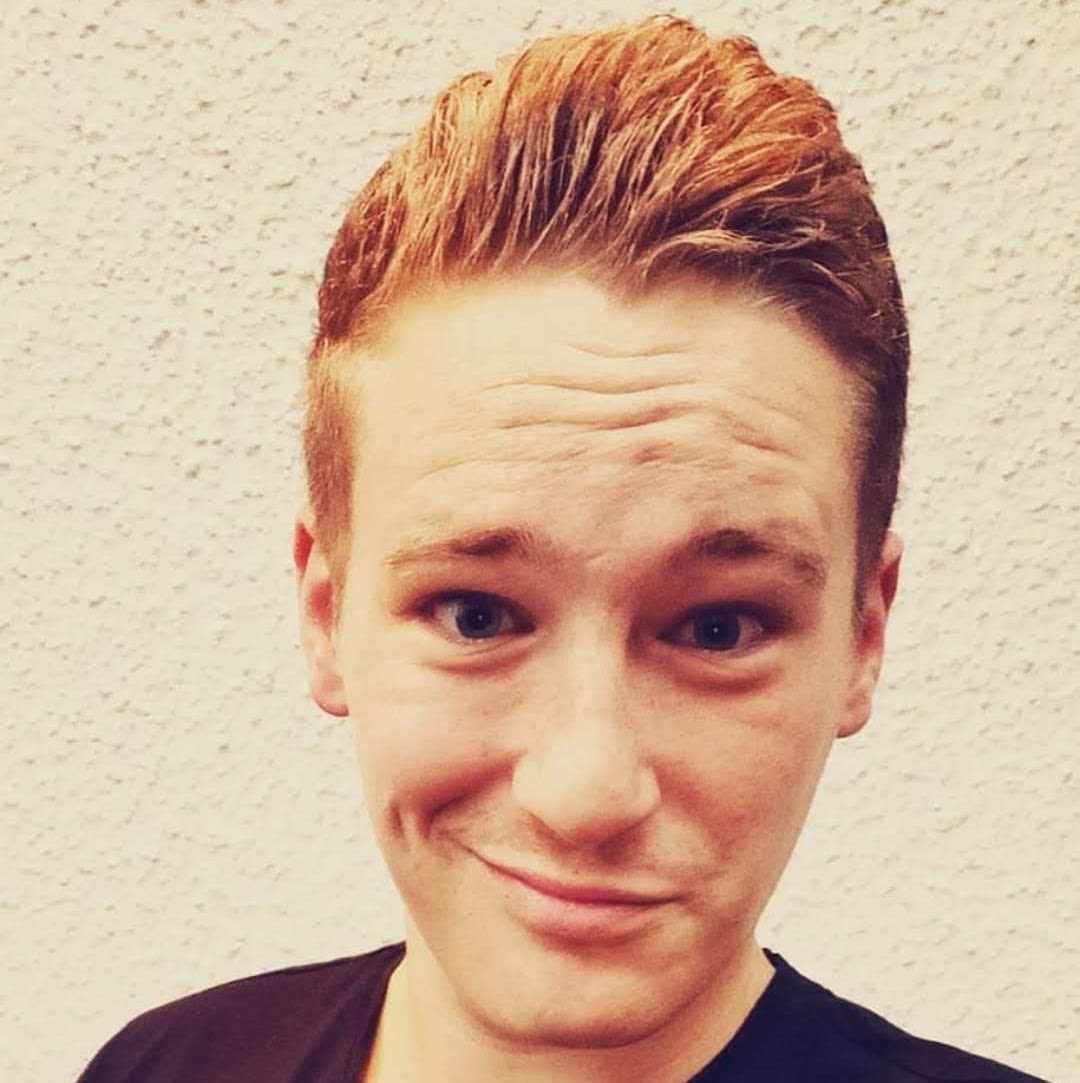
Connor Briggs
(he/him pronouns)
I'm the Community Manager at the Students’ Union. Before working here, I was a York student, studying English and History at undergraduate level and going on to complete an MA in Culture and Thought. I think that York is an incredibly inclusive and accepting university, and I’m really proud of all the amazing work done by both staff and students to showcase the amazing contributions LGBTQ+ individuals have made towards making the campus such a diverse and vibrant place to study and work.
For me, LGBT+ History Month is about taking time to learn about the experiences of members of our community who have come before us. While we have come on leaps and bounds with LGBT+ acceptance and equality, there is still an incredibly long way to go, and sadly discrimination on the basis of sexuality and gender identity is still prevalent today. Learning about our history helps us appreciate the progress we have made, as well as empower communities to continue advocating for tolerance, acceptance, and equality.
Do you have any LGBT+ icons or inspirations?
There are so many LGBT+ icons and inspirations, but one that has influenced me greatly is the author James Baldwin. His works intertwine numerous themes including sexuality, racism, masculinity and religion. Both his fiction and non-fiction writings have been key in educating me and informing my social and political views.
Any tips or advice for anyone wanting some support?
For those in York who are looking for some support, I recommend you get in contact with the York LGBT Forum. They are a great bunch of people and always willing to lend a helping hand and a listening ear!
Grant Denkinson
(he/him pronouns)
I'm nearly 50 and I've been out as bisexual now for more than half of my life. I'm a qualified and registered counsellor and psychotherapist, and I work as an Open Door practitioner here at the University. My role involves supporting students in emotional distress and also building relationships between our service and academic departments. Over the years I've worked at a number of different universities in various departments.
I've only been with York for less than a year but so far it has been a welcoming, friendly and professional place to work. I've been pleased to make contact with the staff LGBTI group a couple of times. I hope to see the University value, and also fund and resource, ongoing efforts to make the York a great place to work or study for people of all sexes, sexualities and relationship styles. I hope that we are also able to contribute to communities through our research.
We are affected by history and we are making history now! It's so important that we hear a wide range of voices, including those that some would hush or silence. We know that some people are and have been marginalised - LGBT+ History Month helps add to the record and bring life to those we didn't have the honour to ever meet.
Do you have any LGBT+ icons or inspirations?
For me, many icons are people who aren't famous for great deeds or celebrities. They're people I've met who are genuinely curious but not intrusive, sharing words about complex humans but not labelling us into boxes, and want to become friends with people as they really are. Inspirations are many, but I'll name Donny the Punk (for likely the first public declaration of the bisexual movement in 1972 at a Quaker event), Brenda Howard (for Pride), Patrick Califia (for powerful prose from the "sex wars") and Ibrahim Farajajé for learning and speech and invocation (to paraphrase "life is just a phase").
Any tips or advice for anyone wanting some support?
My main tip is that there are people out there who will help, who will inspire, who will amuse, who will help form community and friendships and love. Keep looking and keep going until you get to a good place with good people. Create what you need. To quote musician Grace Petrie - 'Black Tie': "You will figure out what’s yours."
I've been impressed by and support Gendered Intelligence. Also check out Purple Prose: Bisexuality in Britain - an anthology edited by Kate Harrad - I'm one of the authors. It's a book written for and by bisexuals in the UK.
In my spare time I enjoy photography - taking pictures and exploring art from other photographers. I recommend the work of Ajamu -which focuses on Black Queer lives and more.
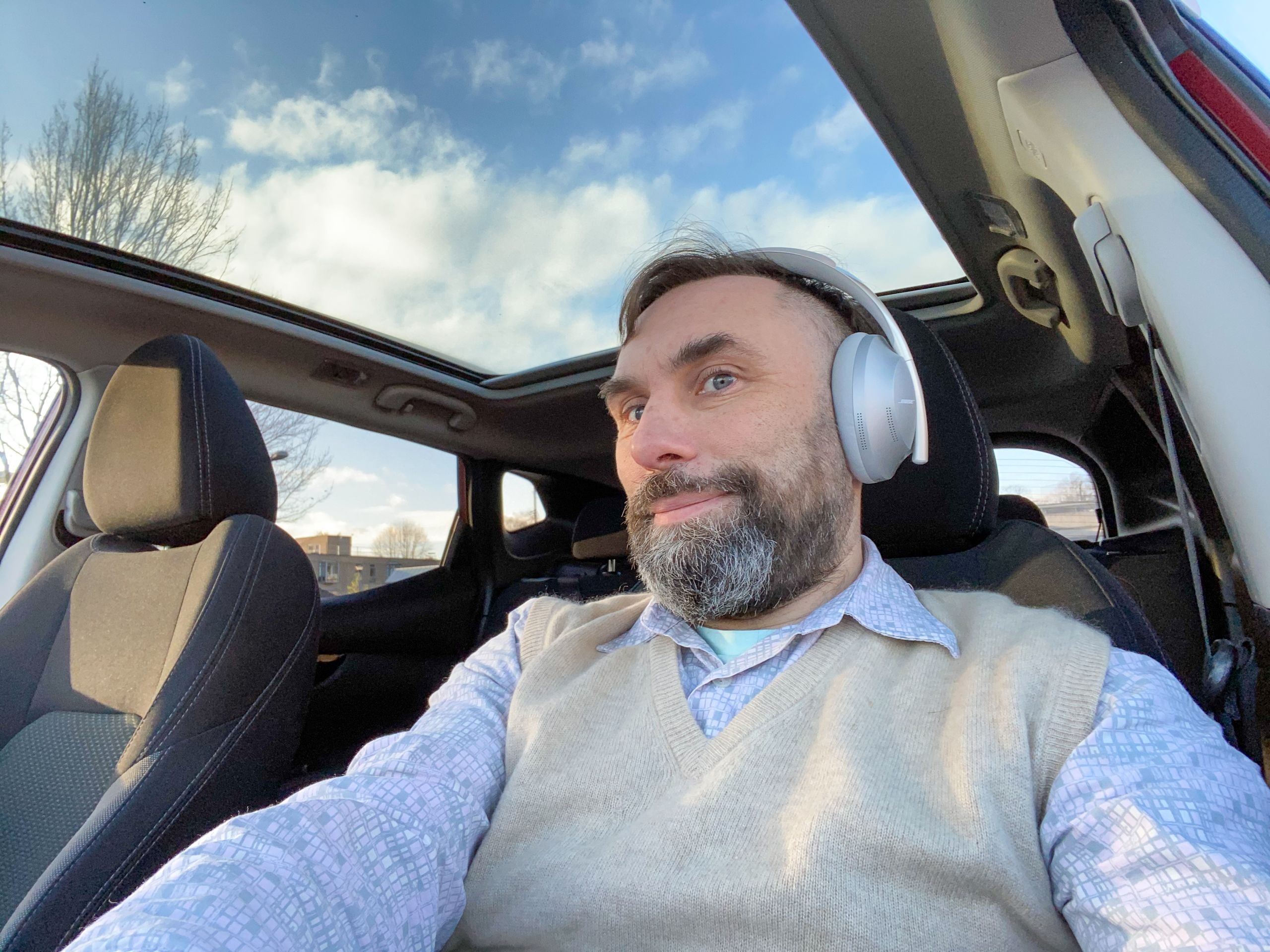
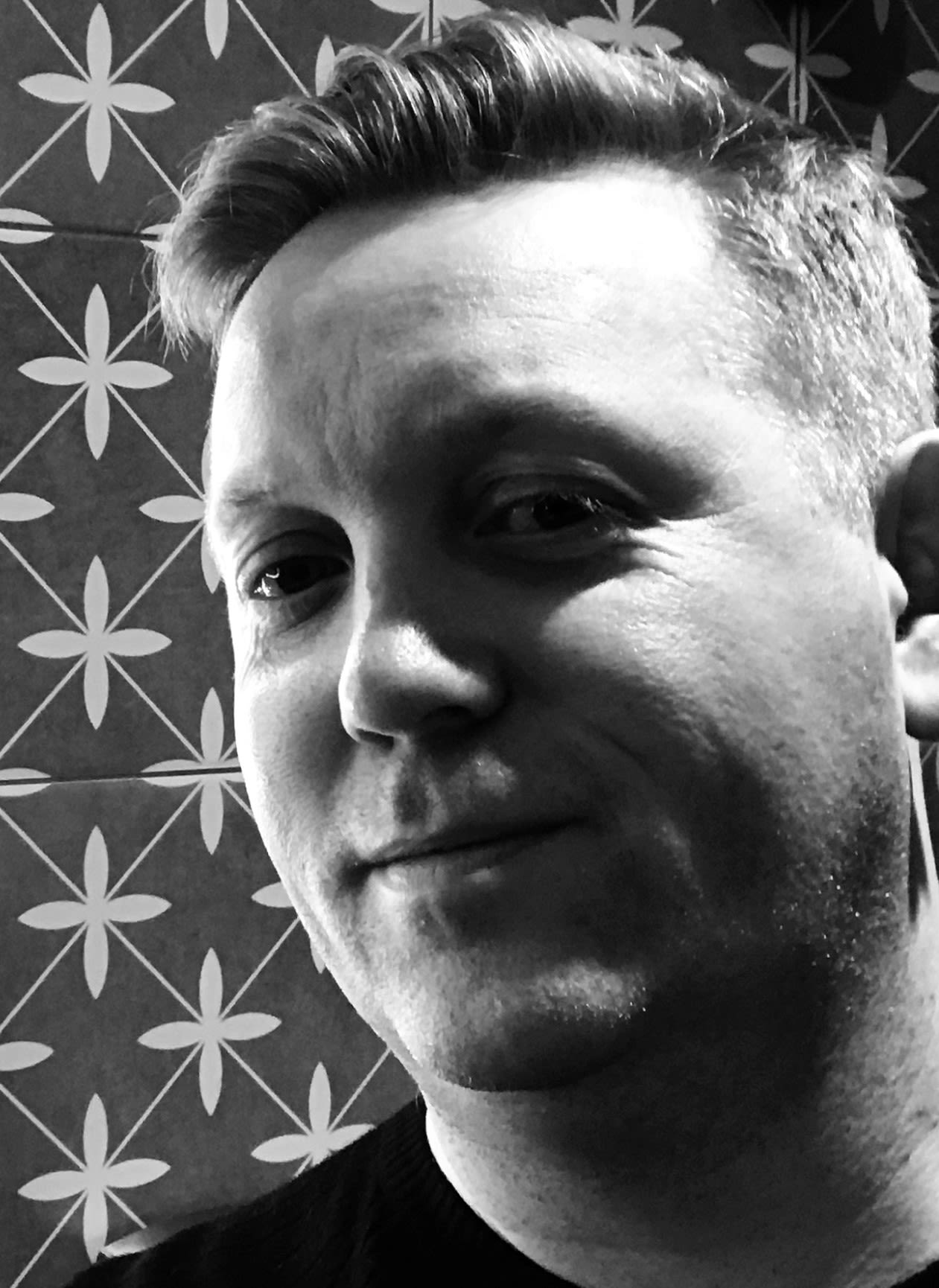
Adam Dawkins
(he/him pronouns)
I am University Secretary in the Vice-Chancellor’s Department and I’ve worked at York for around 18 months now. I'm originally from a market town in Essex, and I lived in London from 22 until my mid-30s. For the past decade have lived on Tyneside, which I love. I got married to my partner Phil in 2018 who, with family and friends, means everything to me.
I want to mention coming out. While it's a continual process for many LGBT+ people every time you engage in a personal conversation with anyone new, coming out to my mum and dad in particular holds a particular poignancy and significance for me, as I did so the day after the bombing of the Admiral Duncan in Soho in 1999.
I loved the Admiral. It was only a five minute walk from my first post-Uni job at the British Academy, and I used to pop into the pub regularly for a post-work pint. It was a welcoming bar - compact, unpretentious and it felt safe for a young man new to London and the gay scene. I wasn’t there on that awful Friday night, but Nick, a guy I knew from back in Essex was. I had a summer holiday job when home from Uni at the Little Chef on the A12 (£3 an hour and all the Olympic Breakfasts I could eat..) and Nick was the Area Manager for the chain. When I moved to London in 1998, our paths crossed again on several occasions. We remembered each other from the Little Chef days, and used to bump into each other in Soho and catch up. Nick was a lovely guy, and I looked up to him as an experienced and confident gay man - all the things I wasn't at that point. Nick was one of three people tragically killed that night in the bomb blast. The events of that night made me realise that being in the closet to family and friends was not an option, out of self-respect, and for those who were injured and lost their lives.
At the University I work with great colleagues, and many are passionate about equality, diversity and inclusion (EDI). The University's marking of LGBT+ History Month, the flying of the Rainbow Flag for Pride, the recent opening of the inclusive road crossing and the naming of one of our new Campus East Colleges after Anne Lister, are symbols of progress and acceptance. However, there's much more to be done. Stonewall’s 2018 report into the experiences of LGBT+ students presents alarming findings around bullying, harassment and deteriorating mental health, particularly for trans students. This picture has not improved, with hate crime on the rise, and an already disproportionately high number of suicides amongst the LGBT+ community on the up.
My sense is that there remains a stubborn view among some that being gay is principally behavioural, and an identification (positive though that stance can be in many ways). This plays into a narrative about LGBT+ as a lifestyle choice, rather than simply integral to your being. Also, being LGBT+ is often not visible to others. It’s for these reasons that LGBT matters rarely receive sufficient EDI airtime. While there have been changes over the years, homophobia still exists - physically and virtually - perhaps in different ways from sexism, racism and disablism. I am lucky, in recent years, most of the prejudice I experience is low-level but that hasn’t always been the case. For the most part it comes from a benign and well-intentioned place, but it still jars and occasionally hurts. Subtle stereotyping is common. For example, when I've mentioned in personal exchanges that I have a same-sex partner, I've had the response - "oh that’s fine" or "that's not an issue" - it's like a seal of approval that you didn’t think you’d sought, or needed! None of this is meant to sound bleak, and these are my experiences, but they are not unique. I realise how fortunate I am with supportive family, friends and colleagues around me, compared to LGBT+ people trying to survive in hostile environments both here the UK and overseas.
LGBT+ History Month each year chimes with the timing of the UK's 2003 abolition of Section 28. We should never forget this, particularly given worrying signs of a return of censoring LGBT content and representation on school curricula. This year’s theme of ‘Mind, Body and Spirit’ emphasises the important connection between these overlapping aspects of ourselves. It’s a call for all of us, whether LGBT+ or not, to take care of our own and others’ wellbeing during these most difficult times. It’s pleasing to see the University play its role in LGBT+ History Month. We can also seek to educate out all forms of prejudice through our own teaching, research and public engagement, as well as our own actions and behaviour.
Do you have any LGBT+ icons or inspirations?
Many LGBT+ friends inspire me just by being brave and unapologetically themselves every day. Academically, ever since A level Sociology I have been a fan of Ken Plummer’s writings. And the acerbic wit of David Sedaris’s essays make for a humorous, if dark, read. Music is a love of mine, and favourite LGBT+ artists include Marc Almond, KD Lang (whose velvety tones are a salve after a stressful day), Jimmy Somerville, Andy Bell, Rufus Wainwright and Billy Porter - which takes me onto Pose. Pose is an amazing dramatisation of the lives of silenced trans and gay voices in '80s and '90s New York drag ball culture. Also, I recommend Russell T Davies’ new C4 series - It’s a Sin. It was almost never made, which speaks volumes in itself given the enviable television track record of Davies. It’s heartbreaking and heartfelt, particularly for those who have lost loved ones to HIV/AIDs.
Any tips or advice for anyone wanting some support?
For anybody struggling with their sexuality, gender identity or being or feeling different in any way, there is help out there, and never think you are alone. You are loved, you are important, and don't let anyone tell you otherwise. I hope being open about my own background and feelings help in some small way.
Alex Palmer
(he/him pronouns)
I’m 23 and I’ve been ‘out’ about my queerness since I was about 17. Some other interesting things about me: I’m a black belt in taekwondo, I love learning languages, and I collect dice and succulents.
I did my undergraduate degree in Chemistry here at York and while studying I did a lot of work with the departmental EDI group. I hugely enjoyed working as part of the team, it was a really supportive environment and I felt like I was able to contribute and make a difference. I now work in postgraduate admissions and I’m starting a departmental EDI group, which is both exciting and scary! It’s been fairly straightforward for me to be out at work, and having the chance to continue pushing for greater diversity and inclusion like I had as a student is fantastic.
LGBT+ History month to me is less about finding specific role models from the past who share my identity and more about a broader community – saying “we’ve always been here”, even if we used different terms or claimed different labels. It’s also about finding the historical narrative that you don’t get when you learn history at school; I can’t think of any discussion of LGBTQ+ people in history that wasn’t about fighting for equality, and while that’s hugely important it shouldn’t be the only narrative we have.
In terms of icons and inspirations, Jack Monroe is right up there – nonbinary, autistic, incredibly talented, and pushing the government to do better (particularly in the recent mess around free school meals during the pandemic). Yasmin Benoit has also done incredible work around aromantic and asexual representation and representation for people of colour in LGBTQ+ spaces.
Any tips or advice for anyone wanting some support?
Stonewall and Gendered Intelligence are both great for advice and support, and online communities on social media can also be incredibly helpful. York LGBT Forum also runs support groups and events for queer people in York, and Mesmac (a Yorkshire-based sexual health charity) run regular meetups and support groups for LGBTQ+ young people. My main bit of advice is to find a supportive group you can turn to, whatever form that takes – having people around you who just get it makes it much easier to deal with.
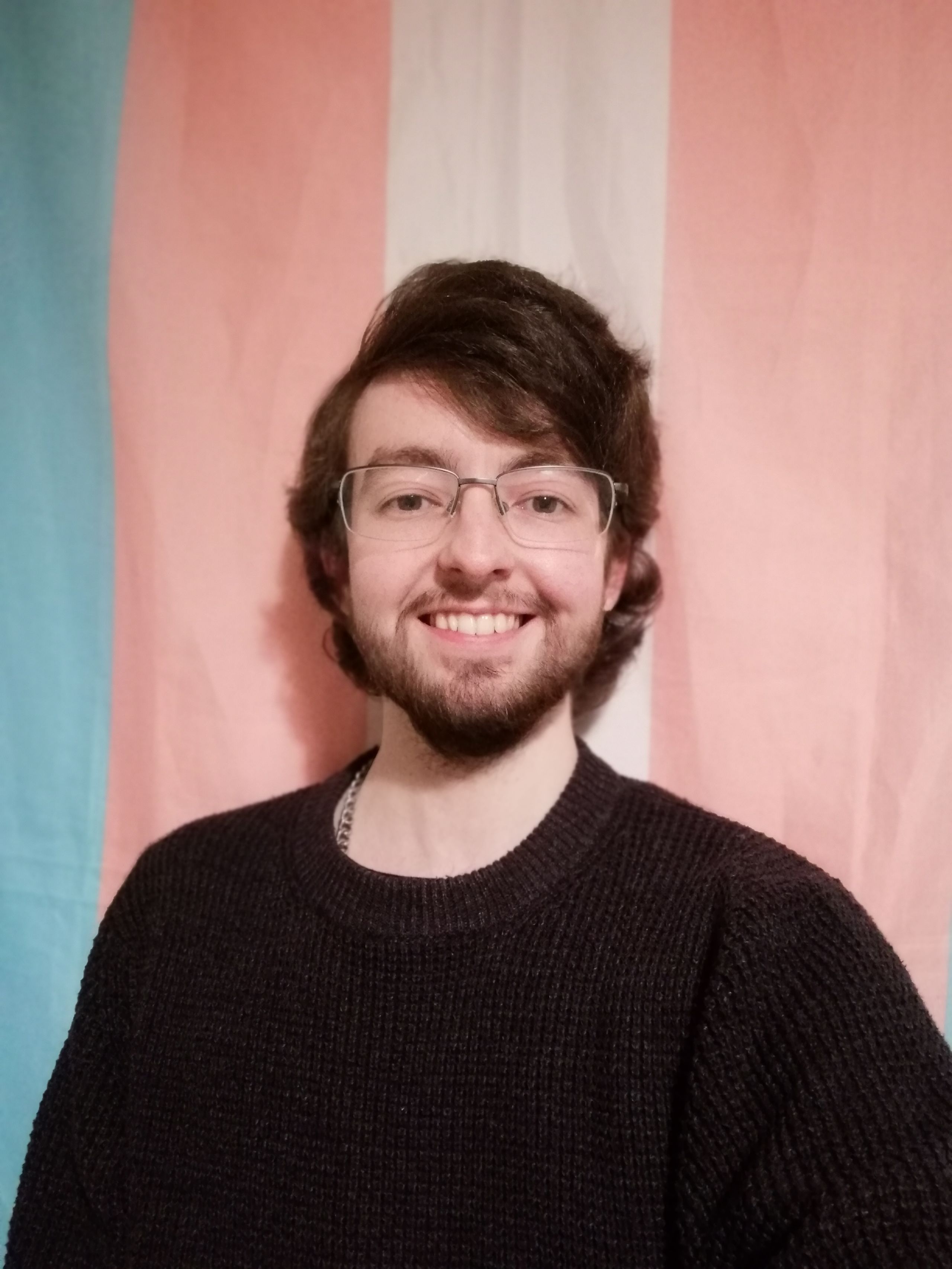
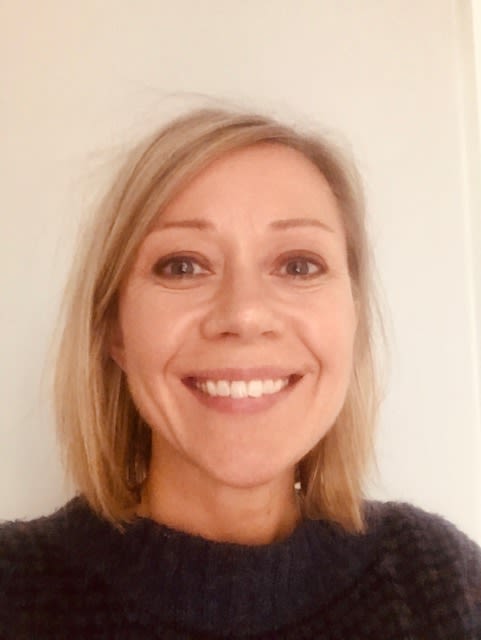
Kelly McDonald
(she/her pronouns)
I’m a Faculty Employability Manager for the Social Sciences in Careers and Placements and this month it's my ten year anniversary at the University. An Essex girl at heart, I have lived in York for nearly 20 years with my partner Keith and we have a 11 year old daughter, Lola.
Tell us about your experience of working at York as an ally
The University of York is committed to establishing an inclusive culture, where people from diverse backgrounds work effectively together, and can feel comfortable and confident to develop to their potential.
I’m learning as I move through my career journey that it’s the people I work with who have a significant impact on my ability to do the job well and to feel engaged and energised whilst I’m doing it. To fully engage in the job I am doing, to thrive in the workplace and to do this in a way that is authentic to me is something that I take for granted. It certainly shouldn’t be a luxury to be able to bring your whole self to work, and that often means being out, and comfortable owning your identity in the workplace.
York LGBT network and building allies in the community, for me, is one of many ways to nurture that inclusive culture and create a space where LGBT+ colleagues can be themselves - feel fully supported and welcomed at work.
LGBT+ History Month is a celebration and provides education and insight into the history of LGBT+ people and the issues that their community faces.
When I talk to my LGBT+ friends about growing up and the challenges they experienced navigating school, coming out (or not) to family, friends and colleagues, this month gives me hope that my daughter and her generation will be supported by communities better equipped at creating cultures of true equality and inclusivity. If every child knew who to speak to at home and school for advice on sexuality and/or gender for example, the stories that we hear during this month, should hopefully begin to shift mostly towards that of celebration and confidence, and not of pain and rejection.
Do you have any LGBT+ icons or inspirations?
Watching It’s a Sin on Channel 4 this week I was struck by creator Russell T Davies and how he has pioneered LGBT+ representation on screen. The wonderful Alice Walker and her magnificent creation of Celie in The Color Purple who revolts against fixed gender roles.
It’s the personal stories of those close to me who have really inspired me and given me a truer sense of what it means to be LGBT+.
Any tips or advice for allies?
Straight allies don’t have to be experts in all matters LGBT+, but listening carefully and empowering yourself with knowledge are important steps. Stonewall has a great online glossary of terms, and numerous other resources you can tap into.
Lucy Bentley
(she/her pronouns)
I joined the Careers and Placements team in November 2018 and my roles has a focus on widening participation. I was new to York when I joined the University, so I was really curious to find out what kinds of diversity and inclusion activities were up and running, both in the city and at the University.
Tell us about your experience working at York as an ally
When I started having meetings with my new colleagues, I noticed that while most staff had plain blue lanyards, there were a few University of York rainbow lanyards in the mix. I think they're a really great way to show solidarity with our LGBT+ students and staff, so I asked around to see if we could source some more. These were quickly snapped up by members of our team and we had to request even more! They've been a great talking point when welcoming new staff to our team, and I look forward to wearing mine again when it's safe to be back on campus.
Quite soon after I'd started at York, my colleague Hannah introduced me to the LGBTI+ Matters staff network. Engaging with this staff network has helped me to make connections with other people from across the university and I've learned so much in a short space of time. I would encourage allies to get involved in our staff networks - it's a good way to hear from colleagues with lived experience, join events like Trans Day of Remembrance and York Pride and take part in social activities.
Any tips or advice for allies?
LGBT+ history month is a great time for allies to learn more about ordinary people who have done extraordinary things - from protests and advocacy work to taking government office. All these firsts have given us the world we live in today, and while there is still so much work to be done, it's an opportunity to reflect on the distance we've travelled so far. I've enjoyed listening to podcasts during lockdown, so I'm looking forward to learning more about Switchboard this month at the online event on 4 February ('The Log Books: Stories from our LGBTQ+ history'). I expect The Log Books podcast will join my 'to-listen-to' list after this introduction.
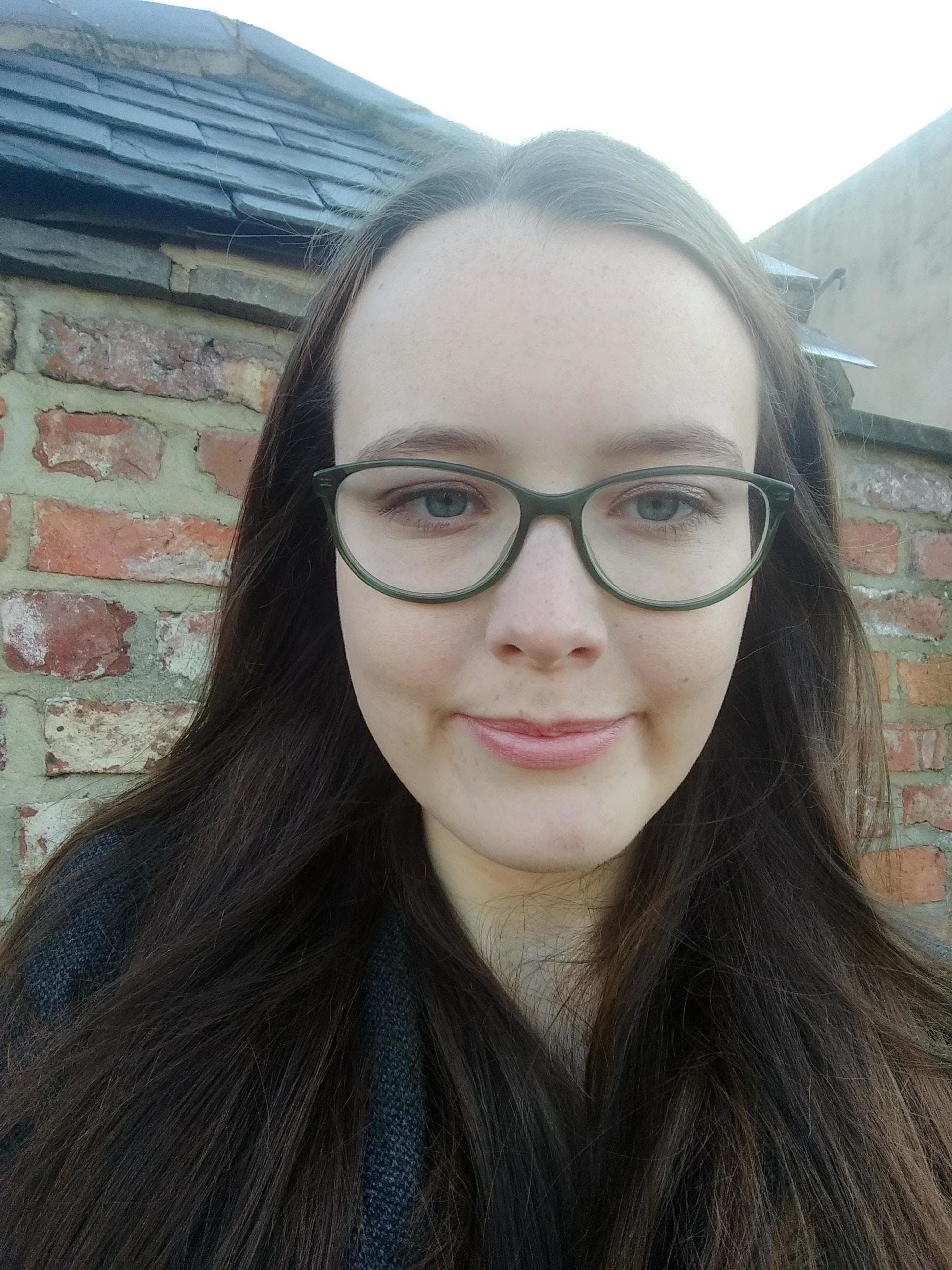
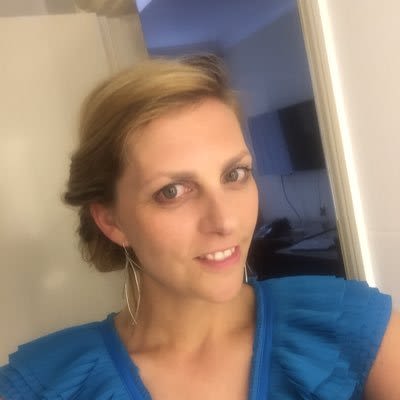
Michelle Blake
(she/her pronouns)
I'm the Deputy Director of Library Services here at the University of York. I have two young children, love food and am originally from New Zealand.
Tell us about your experience working at York as an ally
I've loved working in HE and have been fortunate to make many friends across the institutions I've worked and studied in. Some of these friends and colleagues identify as LGBT+ and have shared that this has been the first place they were able to bring their whole selves to work, or be who they are, without fear of judgement from colleagues or friends. Sadly, I have still witnessed prejudice and judgement directed at my friends and colleagues based purely on how they identify. I've always tried to call out behaviour out. For me, as a mum to two young children, I want them to know it's OK to be who you are, whoever that is, without fear of judgement.
For me, LGBT+ History Month is a huge celebration and a way to honour those who have made it possible for the freedoms that now exist in our society. It wasn't that long ago that we had outdated laws and societal norms, and of course in some places around the world these still exist. So a chance to celebrate what's been achieved and celebrate that it's OK to be who you are. One of the best moments I've ever witnessed was in NZ when same-sex marriage came into law. It was a fantastic day going down to the Beehive (Parliament) to support this with my colleagues from the university I worked at and to celebrate this momentous day.
Do you have any LGBT+ icons or inspirations?
Having just binge watched all of Schitt's Creek, it's clearly David! I just love how the programme is so positive and sexuality is never "a thing". In real life my friends who identify as LGBT+ are a true inspiration when I hear their stories about the things they've had to overcome and what they've had to deal with. They inspire me to be and do better.
